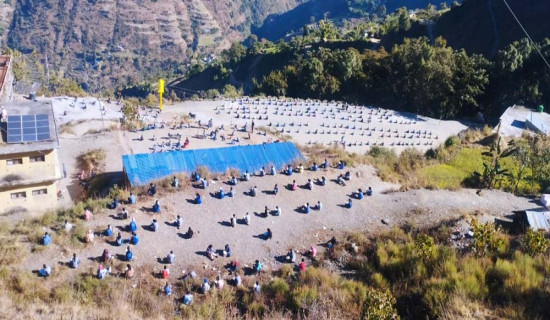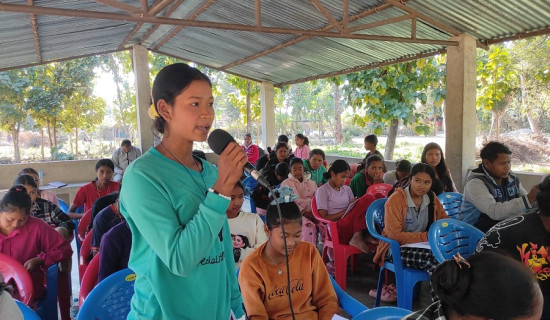- Thursday, 26 December 2024
In Uganda, recent ban on charcoal making disrupts a lucrative but destructive business
Gulu, Uganda, June 13:The charcoal makers in the forests of northern Uganda fled into the bush, temporarily abandoning their precious handiwork: multiple heaps of timber yet to be processed.
The workers were desperate to avoid capture by local officials after a new law banned the commercial production of charcoal. They risked arrest and beatings if they were caught.
But what’s really at stake for the charcoal makers is their livelihood.
“We are not going to stop,” said Deo Ssenyimba, a bare-chested charcoal maker who has been active in northern Uganda for 12 years. “We stop and then we do what? Are we going to steal?”
The burning of charcoal, an age-old practice in many African societies, is now restricted business across northern Uganda amid a wave of resentment by locals who have warned of the threat of climate change stemming from the uncontrolled felling of trees by outsiders. In reality, not much has changed as charcoal producers skirt around the rules to keep supply flowing and watchful vigilantes take matters into their own hands.
Much of northern Uganda remains lush but sparsely populated and impoverished, attracting investors who desire the land mostly for its potential to sustain the charcoal business. And demand is assured: charcoal accounts for up to 90% of Africa's primary energy consumption needs, according to a 2018 report by the U.N. Food and Agriculture Organization.
Before the charcoal ban, local activists formed vigilante groups in districts such as Gulu, where a former lawmaker recently led an attack on a truck that was dispossessed of 380 bags of charcoal. Although Odonga Otto was then charged with aggravated robbery, the country’s chief justice praised him as a hero.
“I have not heard anybody who is destroying our environment being charged,” said Chief Justice Alfonse Owiny-Dollo, who is from northern Uganda. “If you steal from a thief, are you a thief?”
The week after Owiny-Dollo’s public comments, President Yoweri Museveni issued an executive order banning the commercial production of charcoal in northern Uganda, disrupting a national trade that has long been influenced by cultural sensibilities as much as the seeming abundance of idle land. Commercial charcoal production is still permitted in other regions.
The ban follows a climate change law, enacted in 2021, that empowers local authorities across the country to regulate activities deemed harmful to the environment. Trees suck in planet-warming carbon dioxide from the air, but burning charcoal emits the heat-trapping gas instead.
Days after Museveni’s order, a team of Associated Press journalists walked into a charcoal-burning enclave in a remote part of Gulu, 335 kilometers (208 miles) from the Ugandan capital of Kampala.
One local official, Patiko Sub-County Chairman Patrick Komakech, gave chase when he heard fleeing footsteps. A small patch of bamboo opened up to an almost bare patch where trees were being cut, juicy stumps still fresh here and there.
Komakech was agitated and on the verge of tears.
Timber had been heaped like contraband ivory in different spots, and grey smoke rose from one pile being processed. Beside it stood loaded bags of charcoal. The charcoal makers slept in little tarp tents draped in dry leaves.
“I am completely perturbed (by) all this destruction,” Komakech said, speaking of charcoal makers who “are actually imported and put in this community, and they do this thing without the mercy of leaving any vegetation.” (AP)




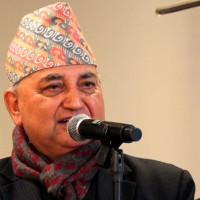
-square-thumb.jpg)


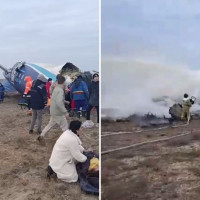
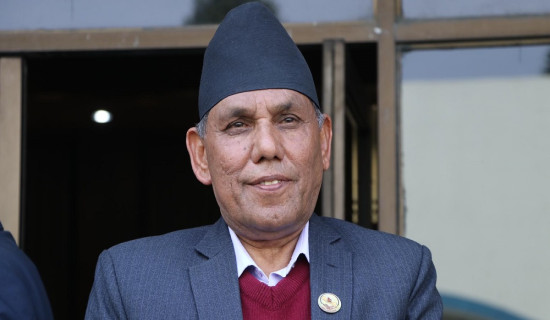
-original-thumb.jpg)


